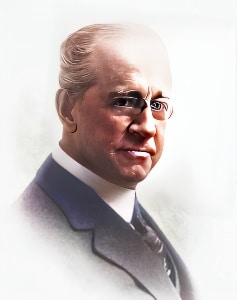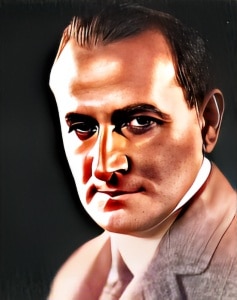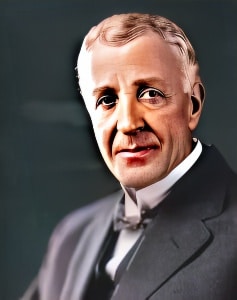 Ronald Colman, born on February 9, 1891, in Richmond, Surrey, England, was a distinguished actor of the stage and screen.
Ronald Colman, born on February 9, 1891, in Richmond, Surrey, England, was a distinguished actor of the stage and screen.
He made significant contributions to the world of cinema during the silent film era and the transition to sound films. His career spanned several decades, and his performances earned him critical acclaim and a lasting legacy in the history of film.
Colman’s journey into the world of entertainment began in England, where he initially pursued a career in engineering. However, his interest in acting soon led him to the stage. He gained early recognition as a talented actor in various stage productions, showcasing his charisma and stage presence.
In 1920, Ronald Colman made his debut in silent films with “The Toilers” (1920). His striking good looks and natural talent as an actor quickly garnered attention. His ability to convey emotions and engage with characters made him a sought-after leading man.
One of Colman’s notable roles during the silent film era was in “ The White Sister” (1923), where he starred opposite Lillian Gish. His portrayal of Giovanni Severi, a soldier who becomes a successful painter, showcased his range as an actor. The chemistry between Colman and Gish added depth to the film’s emotional impact.
As the film industry transitioned from silent films to sound films in the late 1920s, Ronald Colman successfully made the leap to talkies, thanks to his rich and mellifluous voice. His first significant sound film role was in “Bulldog Drummond” (1929), a role that would become one of his most iconic. Colman’s suave and sophisticated portrayal of Captain Hugh “Bulldog” Drummond endeared him to audiences and established him as a leading man in the early sound era.
Throughout his career, Colman appeared in a wide range of films, including dramas, comedies, and romances. His performances were marked by his ability to convey complex emotions and engage with characters in a genuine and relatable manner. His impeccable voice and commanding presence made him a favorite of both critics and audiences.
In 1947, Ronald Colman received the Academy Award for Best Actor for his performance in “A Double Life” (1947). This award cemented his status as one of Hollywood’s most respected actors. He continued to work in the film industry and received critical acclaim for his performances in films like “Random Harvest” (1942) and “The Talk of the Town” (1942).
Ronald Colman’s personal life was marked by a successful marriage to actress Benita Hume and his dedication to charitable endeavors. He was known for his impeccable manners and humility in an industry known for its excesses.
In conclusion, Ronald Colman was a distinguished and charismatic actor who made significant contributions to both the silent and sound film eras. His transition from silent films to talkies showcased his adaptability and enduring talent. His rich voice, versatility, and ability to connect with audiences through his performances left an indelible mark on the history of cinema. Ronald Colman remains a respected and beloved figure in the world of film, with his legacy defined by his remarkable on-screen presence and acting prowess.
Loading live eBay listings...




